
Copyright 2002 Omnibus Press
This edition 2009 Omnibus Press
(A Division of Music Sales Limited, 14-15 Berners Street, London, W1T 3LJ)
ISBN: 978-0-85712-100-4
The Author hereby asserts his/her right to be identified as the author of this work in accordance with Sections 77 to 78 of the Copyright, Designs and Patents Act 1988.
All rights reserved. No part of this book may be reproduced in any form or by any electronic or mechanical means, including information storage or retrieval systems, without permission in writing from the publisher, expect by a reviewer who may quote brief passages.
Every effort has been made to trace the copyright holders of the photographs in this book, but one or two were unreachable. We would be grateful if the photographers concerned would contact us.
A catalogue record for this book is available from the British Library.
Visit Omnibus Press on the web at www.omnibuspress.com
For all your musical needs including instruments, sheet music and accessories, visit www.musicroom.com
For on-demand sheet music straight to your home printer, visit www.sheetmusicdirect.com
Contents
THE GODFATHER OF ROCK
Youre not throwing me in the f

swimming pool Peter Grant
Peter Grant was the most charming, courteous and affable of men until you slammed a car door on his foot, tried to throw him in a pool or attempted to rob or cheat his beloved Led Zeppelin. Then the wrath of Jehovah would be a welcome alternative to the splenetic fury of the Godfather of Rock.
Peter Grant was a former South London wrestler who became one of the most powerful men in the music industry. The formidable figure of G struck fear into the hearts of anyone foolish enough to try to rip off Led Zep or obstruct their inexorable rise to fame. G was a towering, six-foot, 18-stone, moustachioed giant, a 20th century Genghis Khan of the rock world, who would brook no opposition. His favourite weapon was alarmingly abusive language delivered with machine-gun like precision that rendered argument futile. Coupled with his fearsomely powerful presence, which communicated the certain knowledge that should fighting erupt G would win hands down, verbal violence as he termed it won many a battle before it was actually fought.
Yet there was much more to Peter Grant than his semi-mythical status as the hardest of the hard men in the band business. Adept at negotiation, policy making and strategy, he drove the worlds most powerful and dynamic rock team to the top of their game with unrivalled skill and commitment. Grant understood better than anyone that a new phenomenon required special treatment. In the process of taking Led Zep to the top he laid down the ground rules that ensured that the ill-treated pop groups of the Sixties became the millionaire superstars of the Seventies and beyond. If Led Zeppelin were paid so well they were nicknamed Led Wallet byawed rivals, then their tireless manager could take much of the credit. Such was his importance to Zeppelin, he became known as the fifth member. It was an accolade he richly deserved.
Some saw his attitude as bloody-minded aggression. Others recognised he was single-handedly turning rock into a global business with massive rewards to match. Where once promoters demanded the lions share of money from concert revenues, Grant ensured his artists received 90 per cent. Even as Led Zeppelin were stunning fans with screaming vocals, blistering guitar solos and dazzling light shows, Peter was hard at work behind the scenes, arguing with promoters and wading into bootleggers. He never missed a gig and he never missed a trick.
Unlike many managers, he was never tempted to interfere with the bands records or stage act. He left the music entirely in the hands of the musicians. When Led Zep were on the road, they became his family, surrogate sons to be protected and encouraged when times were tough. It was a caring attitude he had adopted right from the start of his career, when he looked after the rocknroll giants of an earlier epoch, Chuck Berry, Little Richard and Gene Vincent.
At the same time, the British bands huge success gave Grant the personal respect, status and power he had craved since he fought his way out of a tough childhood and tougher neighbourhood. Often his fits of temper seemed triggered by a sense of outrage that his personal space was being invaded or his hard won prestige eroded. Nothing angered him more than people taking liberties or trying to muscle in on his territory. It was an attitude not always easy to comprehend, especially by those from comfortable, secure backgrounds where there was no need to shout, swear or raise a fist to make a way in life. In America especially, many were surprised at the way in which G overturned their idea of the traditional Englishman. Grant was no David Niven style gentleman nor another middle-class and slightly nave Brian Epstein, waiting to be exploited and given the run-around. The tough talking Londoner, raised on a diet of street talk and cash, could take on the shady, the devious and the organised and win.
When necessary, of course, Grant wouldnt bat an eyelid at demonstrating the kind of immense personal bravery necessary to ward off a threat. Indeed, he would take fiendish pleasure in offering his personal, physical protection to vulnerable young charges. When a group of sailors began mocking and jeering at Jeff Beck and Jimmy Pages long hair during a US trip by The Yardbirds, Peter stormed into action. He recalled later: The three of us were flying down to Miami and I turned round and heard these blokes. One of them looked like a little tough, so I lifted him up under the arm and said, Okay, whats your problem Popeye? And the other one ran.
If anyone ever needed reminding hed say: If Im out at a concert and somebody is gonna do something to one of my artists, then Ill fucking tread on em, without thinking about it.
Yet like many supposed hard men, Peter retained a gentle streak, probably inherited from his mother. He was a man full of contrasts. At times pugnacious and abrasive, he could also be relaxed, polite, witty and stimulating company. He had a finely developed sense of humour and was surprisingly cultured in his tastes, displaying a genuine passion for antiques and works of art. Often dangerously overweight and improbably dressed in ill-fitting kaftans, baggy jeans and coonskin hats, he attracted the slim, the slight and the delicate. Both men and women found him a comforting, reassuring companion. It wouldnt take much, however, to tip the scales and the gently chuckling host would once again become the man with a face like thunder, erupting with cries of What the fucking hell do you think youre fucking doing!
Says journalist Michael Watts, who met and interviewed Peter on several occasions: I think the interesting thing is you dont need to be a psychologist to see that for a man who was so overweight, having access to women and a certain kind of lifestyle through being the manager of what at one point was the most famous pop band in the world, must have been terrific. He was certainly the man who broke the mould of pop group management and did something different.
In later years, when Grant became a mellow family man, cherishing his own son and daughter and grandchildren, many were puzzled that such a friendly, relaxed individual could ever have been portrayed as a rocknroll monster. Certainly his gangster image, enhanced by his appearance in the movie The Song Remains The Same , had long since faded and was always something of an embellishment. He certainly delighted in telling anecdotes of his former exploits. I did a lot of that , hed say, prodding people in the chest with his finger and recalling how his wrestling techniques often came in useful when a point needed to be made.
Next page
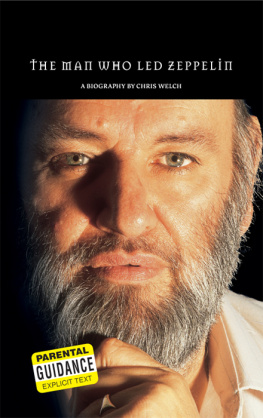



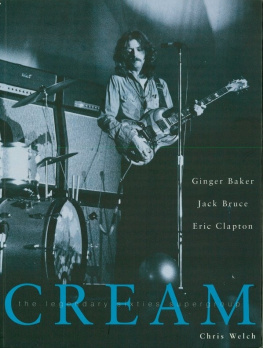

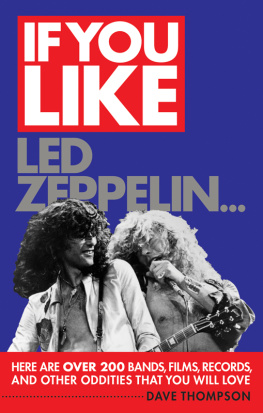

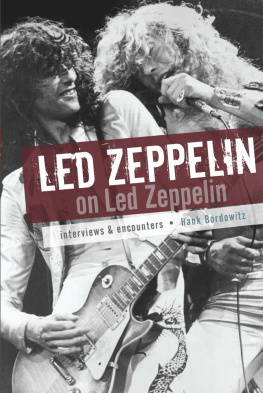

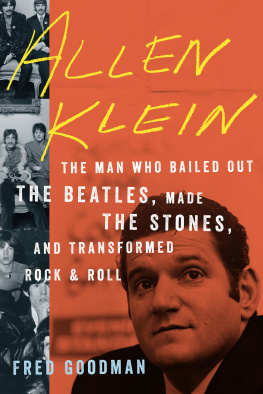
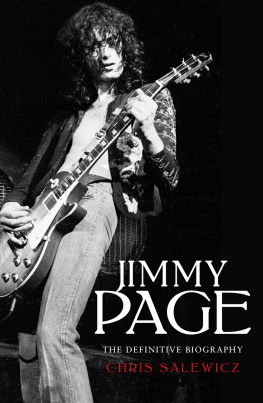
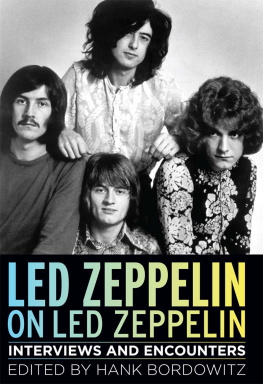

 swimming pool Peter Grant
swimming pool Peter Grant